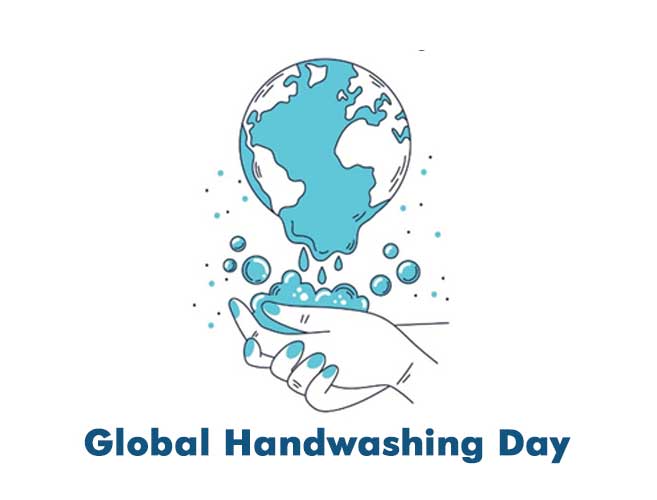
Global Handwashing Day, celebrated annually on October 15, is an important event designed to raise awareness about the significance of hand hygiene in preventing diseases. Promoted by the Global Handwashing Partnership, this day emphasizes the importance of proper handwashing with soap as one of the most effective and affordable health interventions globally. As we reflect on the global impact of hygiene practices, it's crucial to recognize that handwashing is a simple act with profound implications for public health.
The History and Purpose of Global Handwashing Day
The inaugural Global Handwashing Day was established in 2008 by the Global Handwashing Partnership. The initiative was launched during the International Year of Sanitation, endorsed by the United Nations, to promote sustainable sanitation and hygiene practices across the globe. The aim is to create a culture where handwashing with soap becomes habitual, thus reducing the incidence of diarrhea and respiratory infections.
Since its inception, millions of people worldwide have observed Global Handwashing Day. Each year, the theme highlights a particular aspect of hygiene and sanitation, focusing on increasing awareness, improving hygiene infrastructure, and encouraging behavior change, especially in vulnerable communities.
Why Handwashing Matters: The Health Impact
Handwashing with soap is a highly effective way to reduce the spread of infections. Studies have shown that proper hand hygiene can reduce the risk of diarrhea by up to 30% and respiratory infections by nearly 20%. Diseases such as the common cold, influenza, and COVID-19 can be mitigated through frequent and thorough handwashing.
Furthermore, poor hand hygiene is a significant contributor to child mortality rates worldwide. According to the World Health Organization (WHO), diarrhea and pneumonia, both preventable through proper handwashing, are responsible for a large proportion of childhood deaths. In low-income countries, where access to clean water and soap is limited, the impact of poor hand hygiene is even more devastating. Global Handwashing Day aims to address these disparities by promoting education, infrastructure improvements, and policies that support hygiene initiatives.
The Science Behind Handwashing
Why is handwashing with soap so effective? The answer lies in soap's mechanical and chemical properties. Soap molecules have both hydrophilic (water-attracting) and hydrophobic (water-repelling) ends. When you wash your hands with soap, the hydrophobic ends of the molecules attach to oils and grease, which often contain germs like bacteria and viruses. Water alone cannot remove these oils, but soap breaks them down, allowing the water to wash the germs away.
Effective handwashing involves several key steps:
• Wet hands with clean, running water.
• Apply soap and lather well.
• Scrub all surfaces, including the backs of hands, between fingers, and under nails, for at least 20 seconds.
• Rinse thoroughly under clean water.
• Dry hands with a clean towel or air dry.
This process removes germs and prevents the transfer of microorganisms that could cause infections, especially in healthcare settings, schools, and communities.
Barriers to Proper Hand Hygiene
Despite the proven benefits of handwashing, several barriers prevent people from practicing it consistently. The most significant challenges include:
Lack of Access to Water and Soap
Access to clean water and soap is limited in many parts of the world. According to UNICEF, around 3 billion people lack access to basic handwashing facilities at home. This is a significant challenge in regions with high rates of infectious diseases. Global Handwashing Day advocates for increased investment in water, sanitation, and hygiene (WASH) programs to provide basic hygiene facilities to underserved communities.
Behavioral Barriers
Cultural norms and habits often affect whether individuals practice proper handwashing. In some regions, handwashing with soap is not common due to a lack of awareness or deep-rooted behavioral patterns. Effective behavioral change campaigns are essential in promoting hand hygiene as a habitual, everyday practice.
Education and Awareness
Many individuals are unaware of the importance of proper handwashing techniques. Educational programs, especially in schools, are crucial for instilling hand hygiene practices at an early age. Global Handwashing Day provides an opportunity to launch public awareness campaigns, reinforcing the need for consistent handwashing to prevent disease spread.
The Role of Handwashing in Schools and Communities
Children are particularly vulnerable to diseases caused by poor hygiene. Schools play a critical role in shaping hygiene habits. By integrating handwashing facilities and education into schools, children can be taught the importance of cleanliness, creating a ripple effect as they bring these habits home to their families and communities.
WASH programs in schools ensure the availability of clean water, soap, and safe sanitation. These programs promote handwashing and create an environment conducive to learning by reducing absenteeism caused by preventable diseases.
Hand Hygiene and Global Public Health: A Shared Responsibility
Hand hygiene is not only an individual responsibility but a collective one. Governments, public health organizations, private sector companies, and communities must work together to ensure everyone can access handwashing facilities. Public policies promoting hygiene and infrastructure investment can create long-lasting changes in global health outcomes.
For example, during the COVID-19 pandemic, handwashing became a primary tool in reducing transmission rates. This highlighted the urgent need for better hygiene infrastructure and the critical role of handwashing in public health strategies worldwide.
How You Can Participate in Global Handwashing Day
Every Global Handwashing Day, individuals, schools, and organizations are encouraged to participate in events promoting hand hygiene. Simple actions can include:
• Hosting handwashing demonstrations in schools, workplaces, or communities.
• Creating and sharing educational materials on the benefits of handwashing.
• Advocating for improved handwashing facilities in underserved areas.
• Encouraging local governments and policymakers to support WASH initiatives.
Participating in Global Handwashing Day contributes to a more significant movement to prevent diseases, save lives, and foster healthier communities worldwide.
Conclusion
Global Handwashing Day reminds us of the power of simple, everyday actions to protect public health. Handwashing with soap is a low-cost, high-impact intervention that can save lives, reduce healthcare costs, and create healthier societies. We can make handwashing a universal habit by raising awareness, promoting education, and advocating for better hygiene infrastructure.
#GlobalHandwashingDay #HandwashingWwithSoap #HygienePractices



